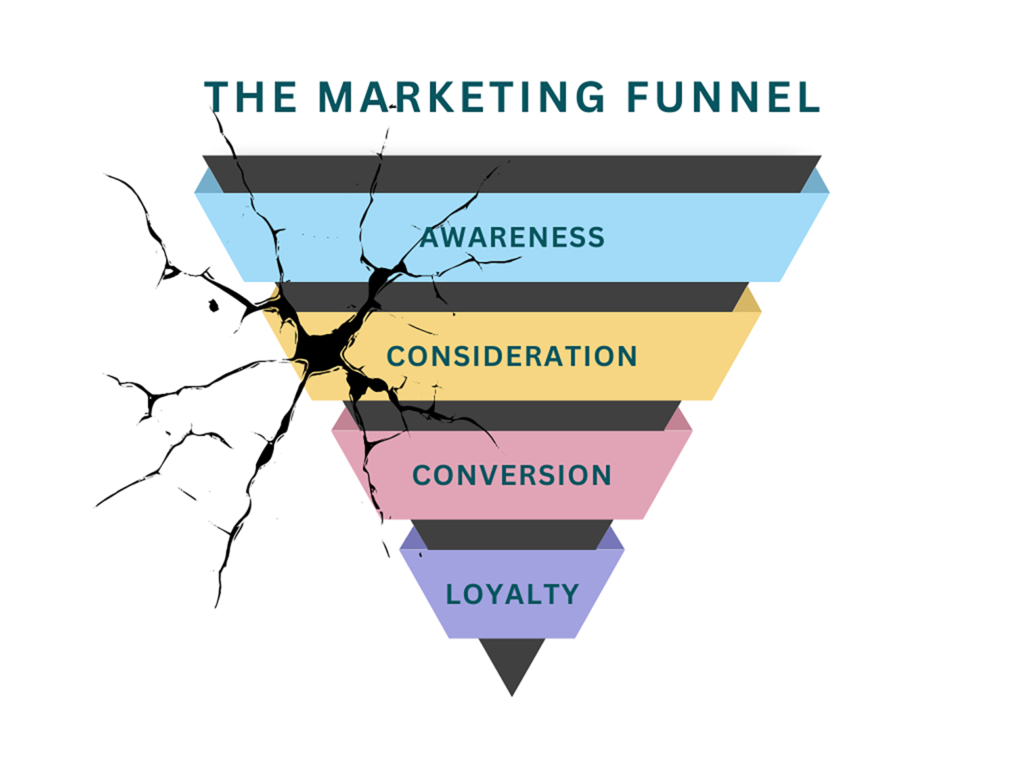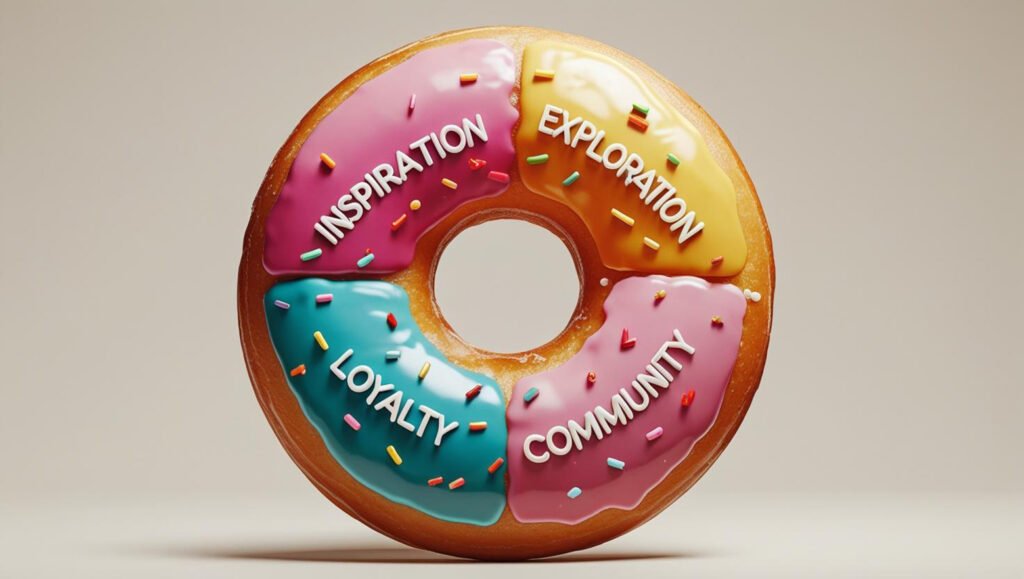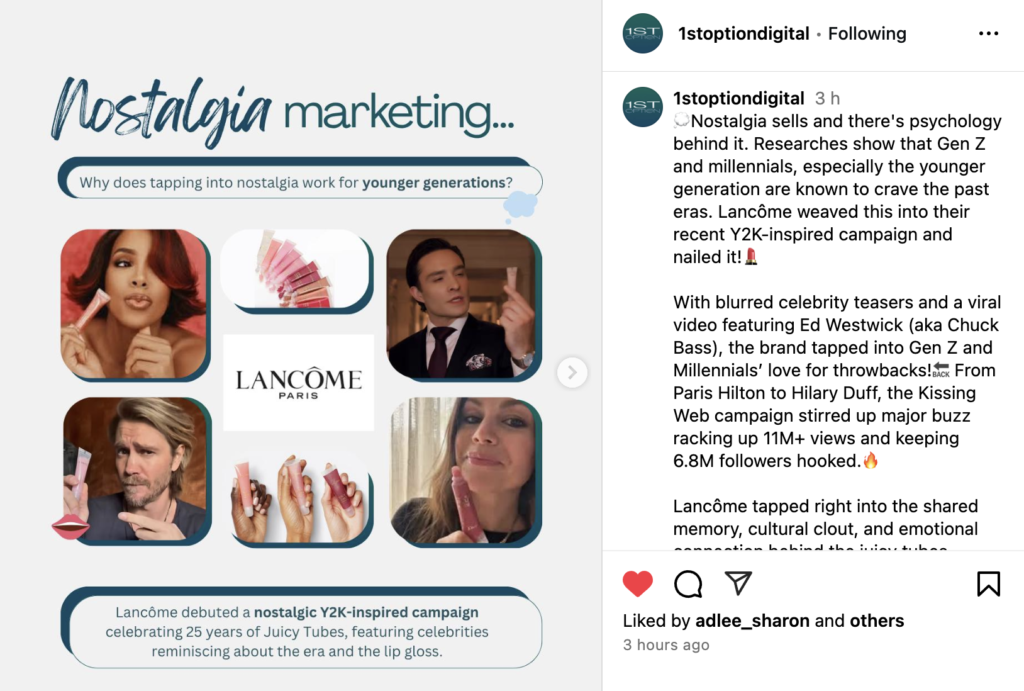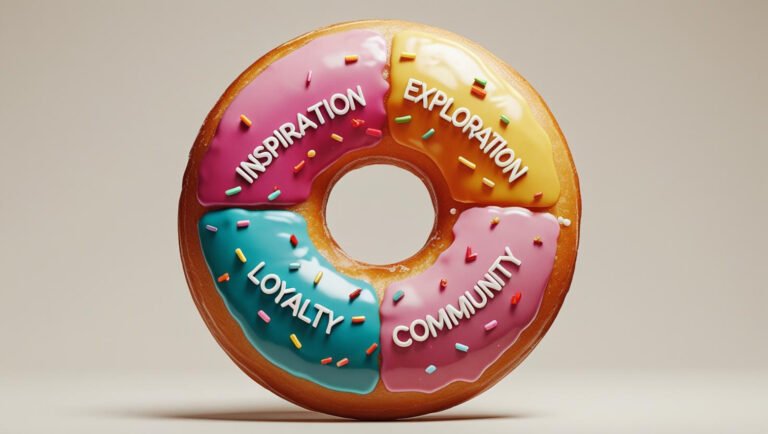You know the good ol’ marketing funnel? When consumers go through awareness, consideration, conversion and loyalty? The conventional method has been around for over 100 years, has four stages and is easier to market. But guess what,
Gen Z has broken it.

So, how does Gen Z make purchasing decisions?
The younger generation has opted for an infinite loop. The modern retail landscape involves inspiration, exploration, community, and loyalty. Gen Z has shattered that linear marketing funnel. Now, the purchase journey is an enter-exit and re-enter pattern at different stages based on needs and wants. And guess what’s at the core of this process… you guessed it, social media.

Social platforms are the new search engines
There has been a rise in social searches with studies finding that 74% of Gen Z use TikTok for search, with 51% preferring this to using Google. This can be seen in Pinterest as well, with 47% of Gen Z using the platform for searches. Instagram has taken note of this and has improved its explore function as well. So, what’s happening? No more doom scrolling, but searching with intent. This isn’t another trend, visual search is in for research. The research phase is crucial for brand trust as 70% of Gen Zs and 69% of millennials only trust a brand after carrying out their research. This is a cultural shift taking place of social tools replacing search engines. Gen Z likes all the tea, which leads to the rabbit hole of seeking details and proof – what better place than social media?!

Gen Z relies on a sense of community
Gen Z relies on community and social media is a hub for connections, entertainment, news sources, educational content, you name it! It’s the same mindset when shopping as well, giving rise to user-generated content (UGC) and influencer marketing. Recent reports suggest that 83% of consumers rely on content creators over brands, a further testament to this buying behaviour.

Are brands keeping up with this?
There’s no straightforward formula, while brands can tap into trends or even create micro-trends, if it’s not giving the main character energy, you turn into another noise. There needs to be a story, Gen Z loves to research and wants gems among the clutter.
So, what makes a brand stand out? Here are a few strategies that have worked for brands:
- Nostalgia marketing: Nostalgia marketing leverages the power of shared memories to drive purchase decisions based on comfort, familiarity, and emotions. Recently, Lancôme debuted a nostalgic Y2K-inspired campaign celebrating 25 years of Juicy Tubes. This featured celebrities reminiscing about the era and the lip gloss to keep 6.8 million followers glued to their screens. We talk more about why this is a good strategy to tap into the younger market…

- Experiential marketing: Experiential marketing focuses on creating meaningful and memorable interactions with consumers. Now more than ever, brands have started to come up with cafes and pop-ups to give consumers a more personalised experience with the brand. Digital creatives have adapted this as well, giving rise to sensory marketing for a more ‘palatable’ impression of the product. Brands are hopping on strategies that are all based on creating an experience for the consumer.
So, what exactly is the right marketing funnel… Be unhinged! The age of an overly curated, aesthetic grid has long passed. Share the journey, narrate a story, and create a user experience that’s genuine. This is why we’re also witnessing brands showcasing everyone from consumers to founders, with a rise in employee-generated content and UGC to make them relatable on social platforms.
@1stoptiondigital bc it’s ✨work✨ #tiktok #officelife #officehumour #marketinglife #agencylife
♬ Awkward Moments – AstroMusic
Gen Z strongly values transparency from brands
Along with transparency, Gen Z likes the nitty-gritty details like ethical sourcing, fair labour practices, and social responsibility. While brands are prioritising transparency, it also gives the audience the power to scrutinise the values upheld by the brand. Recently, fashion brand OddMuse has received flak for claims to be slow-fashion and sustainable. The ‘Pretty Little Thing’ rebrand was called out for greenwashing.

While there is no simple route in Gen Z’s purchase journey, authenticity is key. Keep it simple, keep it transparent, keep it real. For more such topics and insights, follow us on socials.





